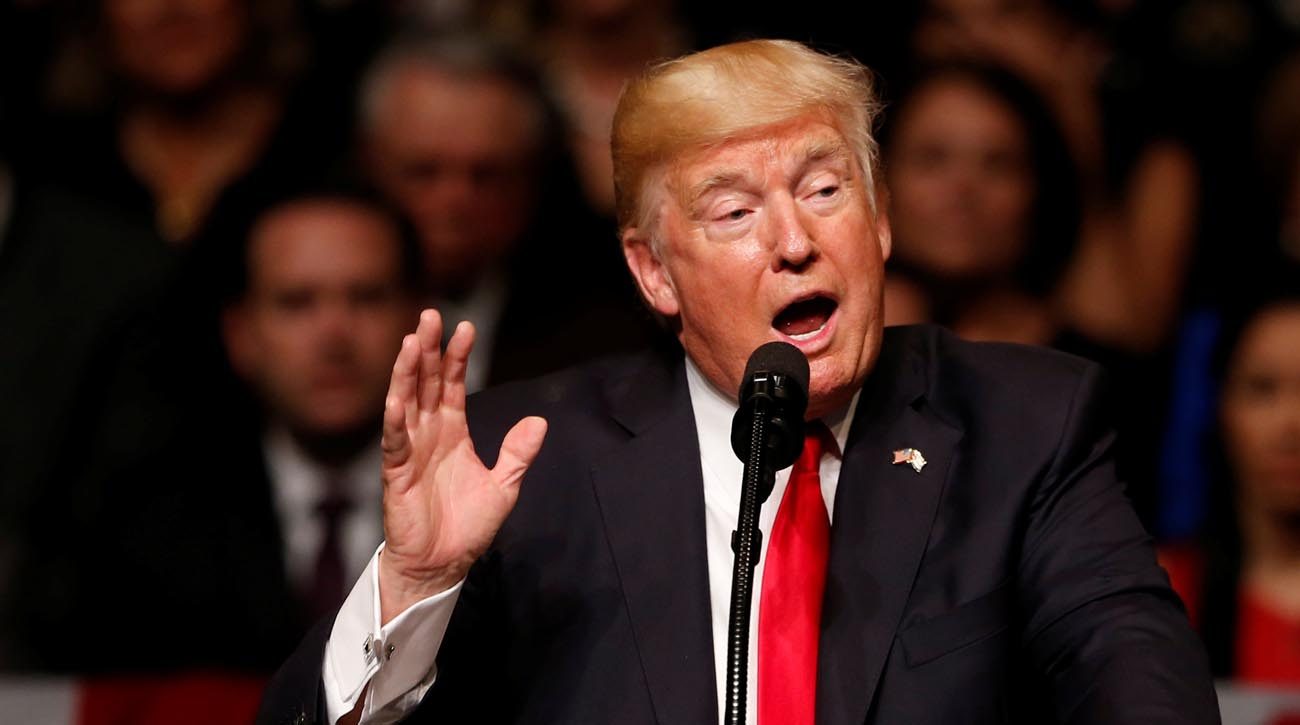WASHINGTON (CNS) — It was hard to tell what changes were made to U.S. policy toward the island of Cuba from President Donald Trump’s June 16 speech in Miami, but what couldn’t be missed was the tone he took toward its government.
“We will not be silent in the face of communist oppression any longer,” he said while surrounded by a crowd of exiles, emigres and Cuban-Americans, including Republican Sen. Marco Rubio of Florida.
Though he said that “effective immediately, I’m canceling completely the one-sided deal with Cuba,” he announced that the U.S. Embassy would remain open on the island and didn’t mention anything about the island nation’s embassy in the U.S., which is in Washington.
[hotblock]
It reopened for the first time in more than 50 years in July 2015 under the Obama administration, and it was then one of the many changes that took place when the U.S., with help from the Vatican, began to reopen diplomatic relations with Cuba. President Barack Obama eased travel and business restrictions.
One of biggest changes the president announced was what he called a “ban on tourism,” but Department of the Treasury documents say the restrictions refer to “individual people-to-people” travel from the U.S. to Cuba, which basically means that a visitor can go on his or her own to the island for “educational travel” that is not tied to a university or academic degree program or group.
Visitors to the island with “group people-to-people travel,” which some church groups use, still will be able to visit. The other change the president talked about involved U.S. companies that do business with military on the island.
“We will strongly restrict American dollars to the (Cuban) military,” he said, but he didn’t say how.
[hotblock2]
Treasury Department documents say “any Cuba-related commercial engagement that includes direct transactions with entities related to the Cuban military, intelligence, or security services that may be implicated by the new Cuba policy will be permitted provided that those commercial engagements were in place prior to the issuance of the forthcoming regulations.”
Lawrence Ward, a partner at the international law firm Dorsey & Whitney in Washington, said that while what Trump said “was a direct rebuke of the Obama administration’s loosening of sanctions against Cuba,” the announcement did not “make clear precisely what will change and how, but does emphasize that the United States does not want to enrich and empower the Cuban military.”
However, he said, “It is important to note that the Obama administration did not want to enrich or empower the Cuban military either.”
Ward said that while the Treasury Department has made clear that it will take some months for any new regulations to be implemented, “it is safe to say that there will be tightening of the people-to-people travel ‘general license.'”
The changes will make it much harder for Americans to travel to Cuba, Ward said, and the burden of complying will be placed on American travelers and on the Office of Foreign Assets Control, which administers and enforces the regulations.
[hotblock3]
“In all, though, it seems that Trump’s announcement in Miami does not go quite as far as some had thought possible because embassies in the countries will remain open and diplomatic relations will continue,” Ward said.
The embargo against Cuba, which only Congress, not a president, can change, will remain in place, Trump said. The U.S. Conference of Catholic Bishops, as well as the Vatican, has long called for an end to the trade embargo, which has been in place for almost 60 years.
Even St. John Paul II, an ardent opponent of communism, favored lifting the sanctions.
“Embargoes,” he said while addressing a group of young people during his visit to Cuba in 1998, “are always deplorable because they hurt the most needy.”
PREVIOUS: Deportation feared as program protecting parents of citizen children ends
NEXT: Louisiana priest in Washington spends hours with Scalise at hospital




Share this story